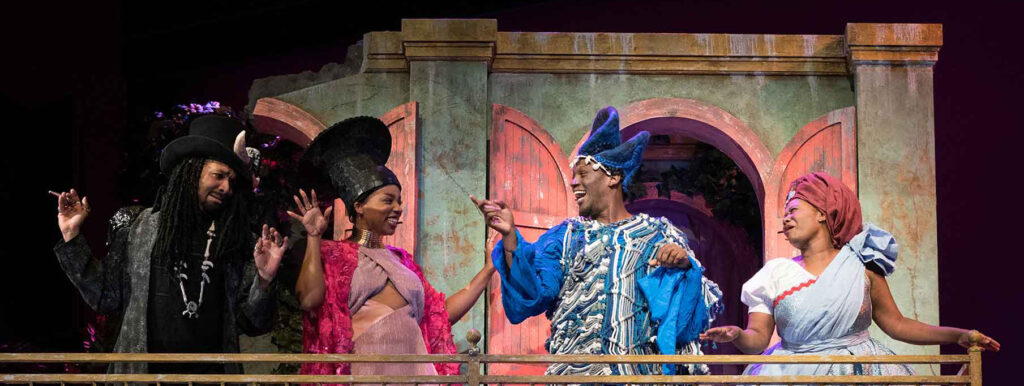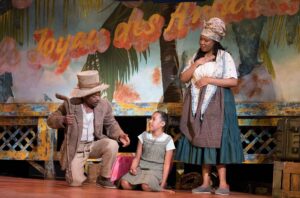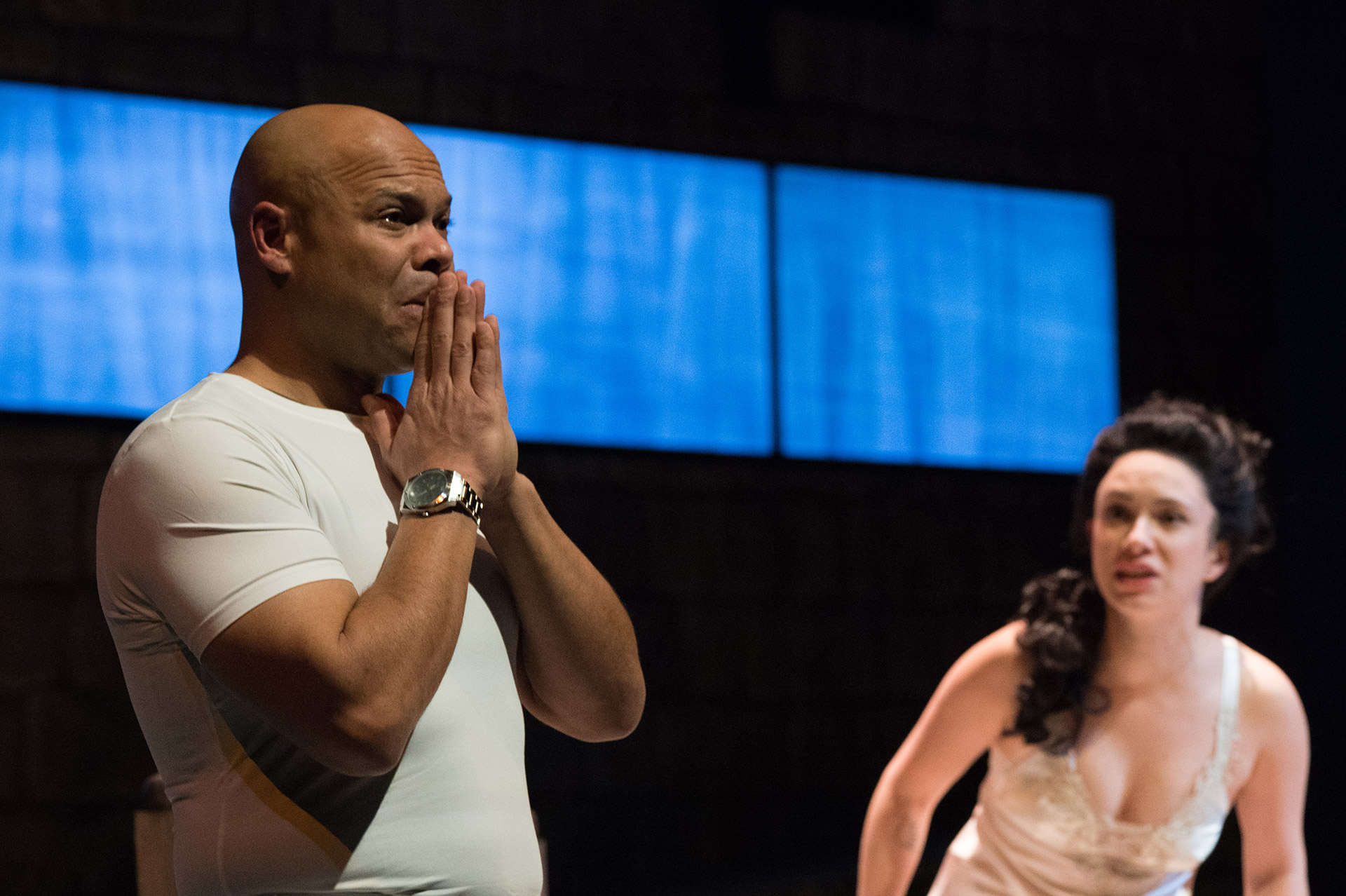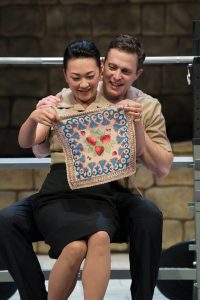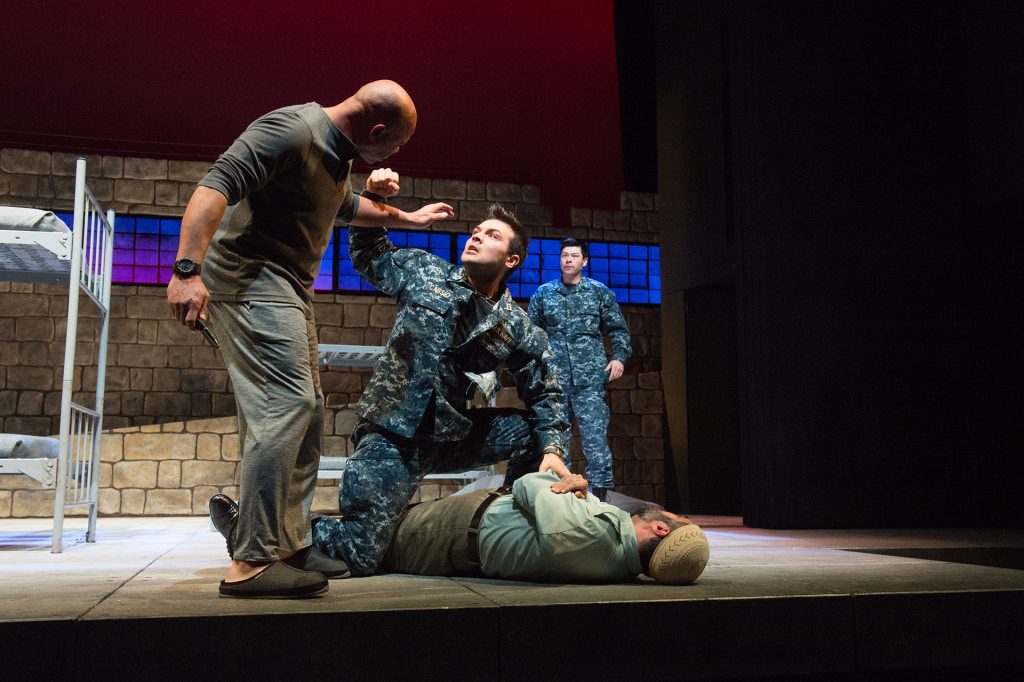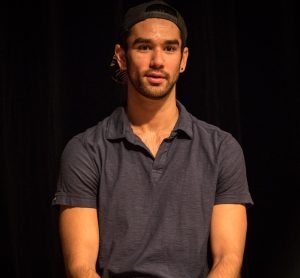“Once on This Island” at OSF
Once on This Island
Book and lyrics by Lynn Ahrens Music by Stephen Flaherty Based Upon the Novel My Love, My Love by Rosa Guy Directed by Lili-Anne Brown
Ashland, OR at the Oregon Shakespeare Festival
It was good to be back in the Bowmer Theater to for a fun evening that is full of energy, good singing, lively movement, and entertaining and meaningful music.
The story is a Caribbean-set retelling of Hans Christian Andersen’s The Little Mermaid, and virtually all plot development in Once is delivered in song. The different moods, the different sounds, and the characters all work delightfully.
All the cast members were above competent with careful expressive motions and voice. I am seriously impressed by the young actress who played Little Ti Moune (either Sasha Jewel Weymouth or Ayvah Johnson, I didn’t see in the playbill which we were seeing that night). The young actor was a dynamo, controlled, and on pitch.
We also enjoyed seeing a larger group of actors fill up the stage. What fun!
The direction and lighting were flawless. The story’s message of racism was obvious and the director’s notes that she was glad to have been able to produce the show from a Black perspective puzzled me. Do some productions make it okay that Ti Moune gets dumped by her prince because of her skin color? Ick.
Some technical areas kept me from pure happiness. The major flaw for me was the costumes. They were overdone and cheap looking straight out of a high school production. I don’t know the budget, but it apparently wasn’t enough.
The sound was also iffy at times. Sometimes the words in songs disappeared in the music. The worst of this was at the end when there’s singing telling the future of Ti Moune and succeeding generations. I missed the future of her as a tree completely.
And, I agree with a friend’s criticism that in a musical there should be some magic that shows up sometime on the set. Once‘s scenic design was unchanging despite the different locations of the scenes. This again was perhaps a budget issue, but the effect was to damp down the specialness of the evening.
Overall the show was a lot of fun with meaning and emotion. I give it:![]()

